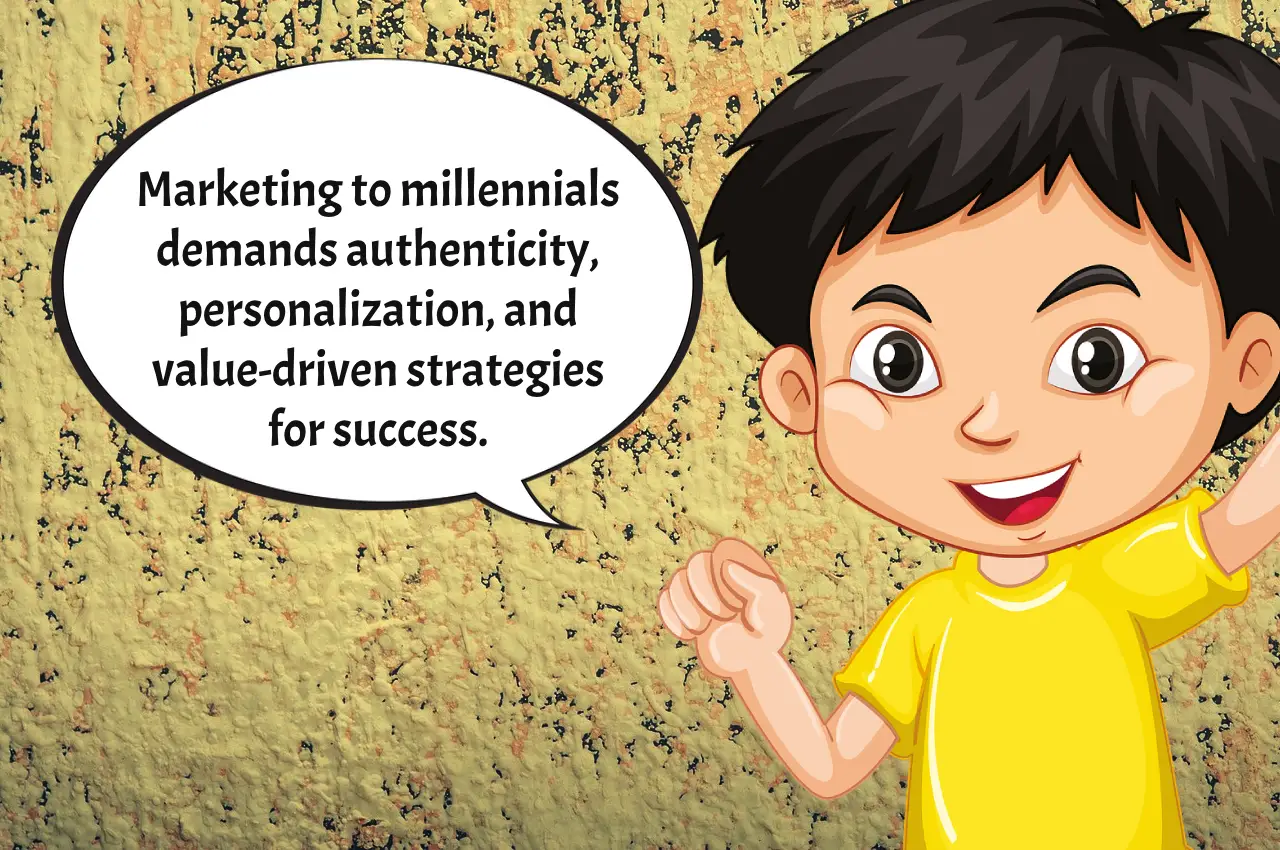Marketing in today’s fast-paced world is no small feat, especially when it comes to millennials. This demographic, born between 1981 and 1996, is often misunderstood. Yet, they hold immense buying power. To tap into this market, a fresh approach is vital. Let’s dive into understanding marketing to millennials effectively.
Who are Millennials?
Millennials are a unique blend of the traditional and the digital. They grew up during significant technological advancements yet remember a world without smartphones. This duality shapes their preferences and behaviors.
Digital Savvy Yet Seeking Authenticity
Millennials are the first digital natives. They navigate online platforms with ease. Despite this, they yearn for authenticity. They prefer brands that are transparent and genuine. For example, Tom’s Shoes succeeded by combining quality products with a strong social cause. This resonates well with millennials who value purpose over mere products.
Personalization is Key
Millennials don’t appreciate one-size-fits-all marketing. They crave personalized experiences. Starbucks, for instance, thrives by offering customizable drinks. This approach makes millennials feel valued as individuals.
Value-Driven Purchasing Decisions
Millennials are more conscious of where their money goes. They prefer brands that align with their values. A Nielsen report shows that 73% of millennials are willing to pay more for sustainable goods. Therefore, highlighting sustainable practices can be a game-changer.
Tech-Savvy but Craving Connection
Despite their tech-savviness, millennials value real connections. They prefer brands that engage with them on a personal level. Social media platforms offer a great avenue for this. Engaging content and interactive campaigns can foster a sense of community.
The Power of Social Proof
Millennials rely heavily on reviews and testimonials. They often turn to social media for opinions before making a purchase. A study by BrightLocal found that 93% of consumers read online reviews to determine if a business is good or bad. This shows the importance of cultivating positive customer reviews and testimonials.
Experiences Over Products
Millennials value experiences more than material possessions. They seek brands that offer more than just a product or service. For instance, Airbnb’s success isn’t just in renting homes. It’s in offering unique travel experiences. Brands should focus on creating memorable experiences.
Mobile-First Approach
For millennials, mobile devices are a way of life. A mobile-first strategy is essential. Websites and marketing materials must be mobile-friendly. Easy navigation and fast loading times are crucial. Remember, a poor mobile experience can drive millennials away.
Influencer Marketing Works
Millennials trust influencers almost as much as their friends. Brands can leverage this by collaborating with influencers. However, the fit must be authentic. Millennials can spot a forced partnership from miles away. Choose influencers who genuinely align with your brand’s values.
The Importance of Corporate Responsibility
Corporate social responsibility (CSR) resonates with millennials. They support companies that contribute to the greater good. For example, Patagonia’s commitment to the environment has earned them a loyal millennial following. CSR initiatives shouldn’t be an afterthought. They should be a part of your brand’s core values.
Keeping Up with Trends
Millennials are trendsetters. Keeping up with trends is crucial in engaging them. However, this doesn’t mean mindlessly jumping on every trend. It means understanding what’s relevant to your audience and incorporating that when marketing to millennials.
The Need for Speed and Convenience
Millennials value their time. They prefer brands that offer convenience and speed. Amazon’s one-day shipping is a perfect example of this. Easy-to-use interfaces and quick service can make or break a millennial’s loyalty to your brand.
Leverage User-Generated Content
User-generated content (UGC) is a powerful tool. It’s authentic and relatable. Encourage your millennial customers to share their experiences with your brand. This not only provides social proof but also builds a community around your brand.
Avoid Hard Selling
Hard selling doesn’t sit well with millennials. They prefer educational and informative content. Provide value first, then introduce your products or services in a subtle way. This approach builds trust and credibility.
A New Era of Marketing
Marketing to millennials requires understanding their unique preferences and values. It’s about authenticity, personalization, and value-driven strategies. Brands that adapt to these needs will find success in this lucrative market.
Now, we’d love to hear your thoughts! How has your experience been with marketing to millennials? What strategies have worked for you? Share your insights and join the conversation below. Let’s learn and grow together in this ever-evolving marketing landscape.





